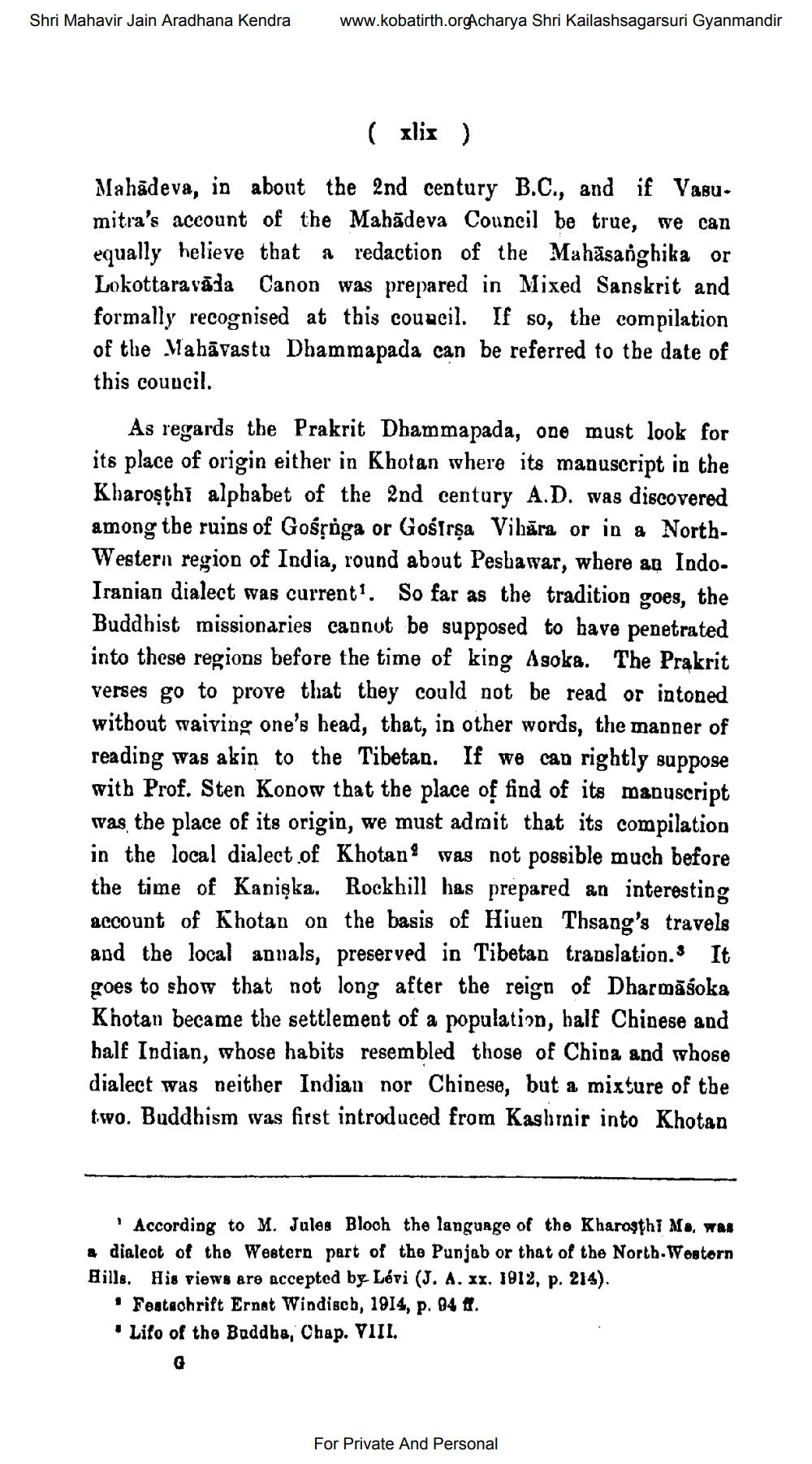________________
Shri Mahavir Jain Aradhana Kendra
www.kobatirth.orgAcharya Shri Kailashsagarsuri Gyanmandir
( xlix
)
Mahādeva, in about the 2nd century B.C., and if Vasu. mitra's account of the Mahādeva Council be true, we can equally helieve that a redaction of the Mahāsanghika or Lokottara vāda Canon was prepared in Mixed Sanskrit and formally recognised at this council. If so, the compilation of the Mahāvastu Dhammapada can be referred to the date of this council.
As regards the Prakrit Dhammapada, one must look for its place of origin either in Khotan where its manuscript in the Kharoşthi alphabet of the 2nd century A.D. was discovered among the ruins of Gośçöga or Gośırsa Vihāra or in a NorthWestern region of India, round about Peshawar, where an Indo. Iranian dialect was current". So far as the tradition goes, the Buddhist missionaries cannot be supposed to have penetrated into these regions before the time of king Asoka. The Prakrit verses go to prove that they could not be read or intoned without waiving one's head, that, in other words, the manner of reading was akin to the Tibetan. If we can rightly suppose with Prof. Sten Konow that the place of find of its manuscript was the place of its origin, we must admit that its compilation in the local dialect of Khotano was not possible much before the time of Kanişka. Rockbill has prepared an interesting account of Khotan on the basis of Hiuen Thsang's travels and the local annals, preserved in Tibetan translation. It goes to show that not long after the reign of Dharmāśoka Khotan became the settlement of a population, half Chinese and half Indian, whose habits resembled those of China and whose dialect was neither Indian nor Chinese, but a mixture of the two. Buddhism was first introduced from Kashinir into Khotan
According to M. Jules Bloch the language of the Kharosthi Mo, was dialect of the Western part of the Punjab or that of the North-Westorn Hills. His views are accepted by Lévi (J. A. xx. 1912, p. 214).
Featechrift Ernst Windisch, 1914, p. 04#. Lito of the Buddha, Chap. VIII.
For Private And Personal




